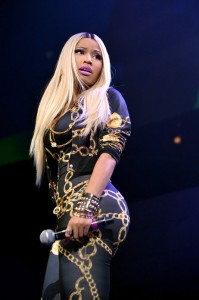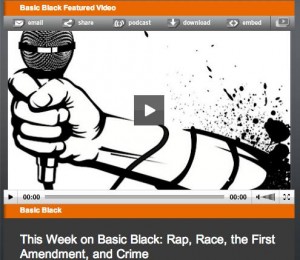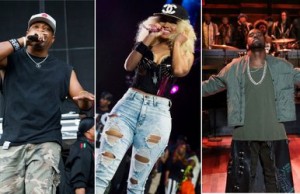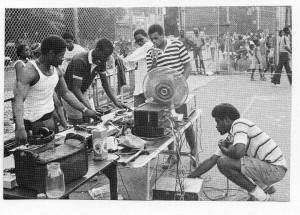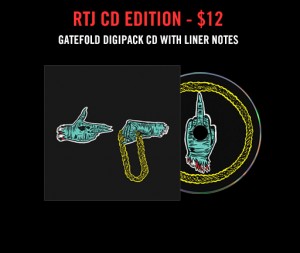
The discussions surrounding rap music have, for the last few months in particular, been dominated by Kanye West and Jay-Z, whose recent releases Yeezus and Magna Carta…Holy Grail have transfixed mainstream hip hop devotees who were waiting eagerly for their latest dose of mediocre music from hip hop’s self-proclaimed deities. I’ve listened to both albums, and neither is particularly inspiring (I actually fell asleep a couple of times during Magna Carta) yet the number of column inches dedicated to them has been staggering. That kind of press goes far–even though most critics agree that Jay-Z comes up short on this latest effort (best review was probably Chris Richards’ at Washington Post), it went platinum the day it was released. And while Kanye’s album probably won’t match Jay’s numbers (even though it’s somewhat better), he nevertheless got media coverage that was, at times, fawning. (See, for example, Jon Caramanica’s interview with Kanye for The New York Times.)
Meanwhile, there’s actually a newsworthy record that’s out, even though you might not know it. I’m actually embarrassed to admit that I didn’t know about it until a few days ago: it’s Killer Mike and El P’s most recent collaboration, Run the Jewels, which was released as a free download by Fool’s Gold Records a few weeks ago. After R.A.P. Music–arguably the best rap album of 2012–I’ve been hoping that EL P and Killer Mike would get back together, and although I’ve only listened to it a couple of times, Run the Jewels doesn’t disappoint. Is it as heady or political as R.A.P. Music or EL P’s 2012 Cancer 4 Cure? Maybe not, but it’s got flashes of brilliance that should remind us why these guys are still collaborating.
I don’t just like the album because it appears to take a number of swipes at Kanye and Jay Z (e.g., “I stand on towers like Eiffel, I rifle down all your idols. / Niggas will perish in Paris. Niggas is nothing but parrots”) but because it’s fearless, lyrically potent, and (of course) well produced. On the surface, the parallels between Run the Jewels and Watch the Throne are apparent (collaborations with similar-sounding-titles), but once you listen to both, the differences couldn’t be more stark. Whereas Jay Z and Kanye offer slick, recycled images of wealth and mindless consumerism that offer little in the way of thought or innovation, Killer Mike and EL P continue their tradition of attacking social institutions–“DDFH” is a particularly good example (one that naturally appeals to a guy who writes about hip hop and law enforcement)–or approaching more typical rap content in refreshing ways. In “No Come Down,” for instance, Mike recounts a sexual encounter at a strip club, but not in the played out, bottle popping, bitches-and-piles-of-cash style. Instead, he twists the narrative into a mushroom-induced hallucination that quickly escapes the confines of the strip club and becomes a psychedelic, metaphysical journey across space and time. Mike’s literary sensibilities (and make no mistake, they run deep in this guy) come through here, reminding us that even a strip club track can be, well, good.
I had the pleasure of interviewing Killer Mike earlier this year, and he’s one of hip hop’s truly impressive intellectuals. (He has that reputation among people who know him, but I got to hear it for myself.) That’s why he’s putting out such good music, but also why he’s not getting the recognition he deserves in an industry that often prefers its music to be moronic. And although I honestly have never warmed up to EL P’s style, even as I admire his talent, I am starting to come around. I’m not sure he can compete with Mike on the mic, but his rhymes here are solid, and I plan to pay more attention to them as I listen to the album again. And again.
Is this another R.A.P. Music? Not quite. But when a quickly made free download is better than what the titans of the mainstream industry are putting out, it’s definitely worth some attention.

